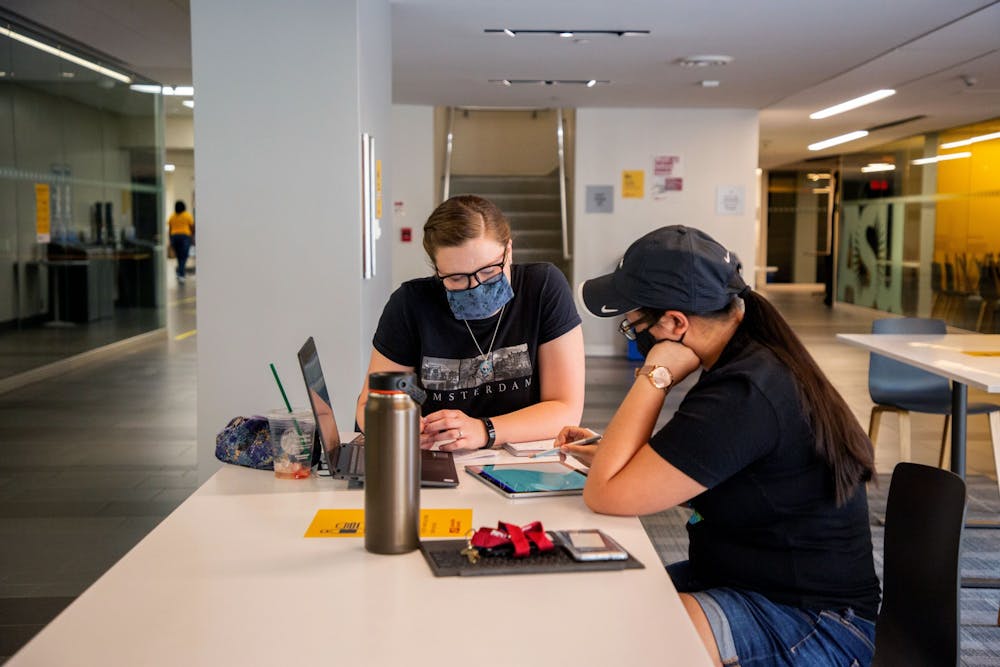Entering college is a big step for many students, whether they be the first generation or one in a long line of many family members.
The decision to attend a university is a hard one that is accompanied by the even more difficult task of selecting an area of study to devote yourself to for the next four years.
Many students enter college unsure of their desired career path and nervous about committing to something that they might not be interested in. They might change their major multiple times before they graduate, like many ASU students do.
Many also operate under the belief they are enrolled solely to attain job skills or knowledge that will lead them to a stable career and significant financial success.
However, they often don't realize that this isn't the purpose of attending a university, and while it may be one of many benefits they will enjoy from their time in school, this line of thinking should not be encouraged by the institutions themselves because it de-emphasizes the inherent value of education.
Education has deep intrinsic value that is rooted in the natural curiosity of humanity and higher education shouldn't serve simply as a required step to enter the skilled workforce.
Through overemphasizing skills at the expense of knowledge and a focus on the career placement of graduates, institutions have eroded what should be the intent and purpose of a university: to further the pursuit of knowledge.
ASU's colleges, including W. P. Carey School of Business and the Herberger Institute for Design and the Arts, pride themselves on the career outlook and average starting salaries of their graduates.
But while these factors may indicate that the schools succeed, it shows that they ignore the far more important factors for graduates of universities, such as how much did they learn, and how significantly did they grow?
"When I first started going to college, I was double majoring in jazz performance and music education … my dad would always question me, 'make sure you have a backup,'" said Natalie Gallatin, a first year graduate student studying jazz performance.
When the focus becomes careers, students are forced to forego knowledge and experiences that are not directly related to their desired career paths.
Instead of fostering an environment of learning and building well-rounded students, universities risk becoming a job factory that fails to encourage the natural curiosities of their graduates.
"It's tricky, because on the outside looking in, ASU is a money maker, it's a business that is run to bring in money and put out people with degrees and jobs," Gallatin said.
While learning skills and information related to certain careers is undoubtedly valuable, it should not be the primary focus of institutions.
Instead, universities should encourage an approach that promotes the core value of learning, emphasizes becoming well-versed in multiple subjects, and provides equal importance to all opportunities and fields regardless of their career outputs.
"I think if somebody has the desire to investigate or explore so many avenues you should be allowed to do that," Gallatin said.
The stress placed on students to pick and sustain a focus throughout their time in college takes away from the learning experience and results in burnout.
It also reduces the academic experience to simply another step in the process of getting a job, taking away from the sacred art of higher education.
In emphasizing specificity and financial gain as the primary value of learning, universities have forgotten that there is an inherent value to knowledge for the sake of knowledge and reduced the goal of a university to providing the means to a stable income and career.
This incredibly reductive attitude toward education displays a stunning ignorance to the beauty of learning, and takes away from what should be the purpose of a university, which is not to funnel students into an office job but to foster a lifelong devotion to curiosity and advancement.
Reach the columnist at tkgerald@asu.edu or follow @TKGeraldMusic on Twitter.
Editor's note: The opinions presented in this column are the author's and do not imply any endorsement from The State Press or its editors.
Want to join the conversation? Send an email to opiniondesk.statepress@gmail.com. Keep letters under 500 words and be sure to include your university affiliation. Anonymity will not be granted.
Like The State Press on Facebook and follow @statepress on Twitter.
Continue supporting student journalism and donate to The State Press today.




